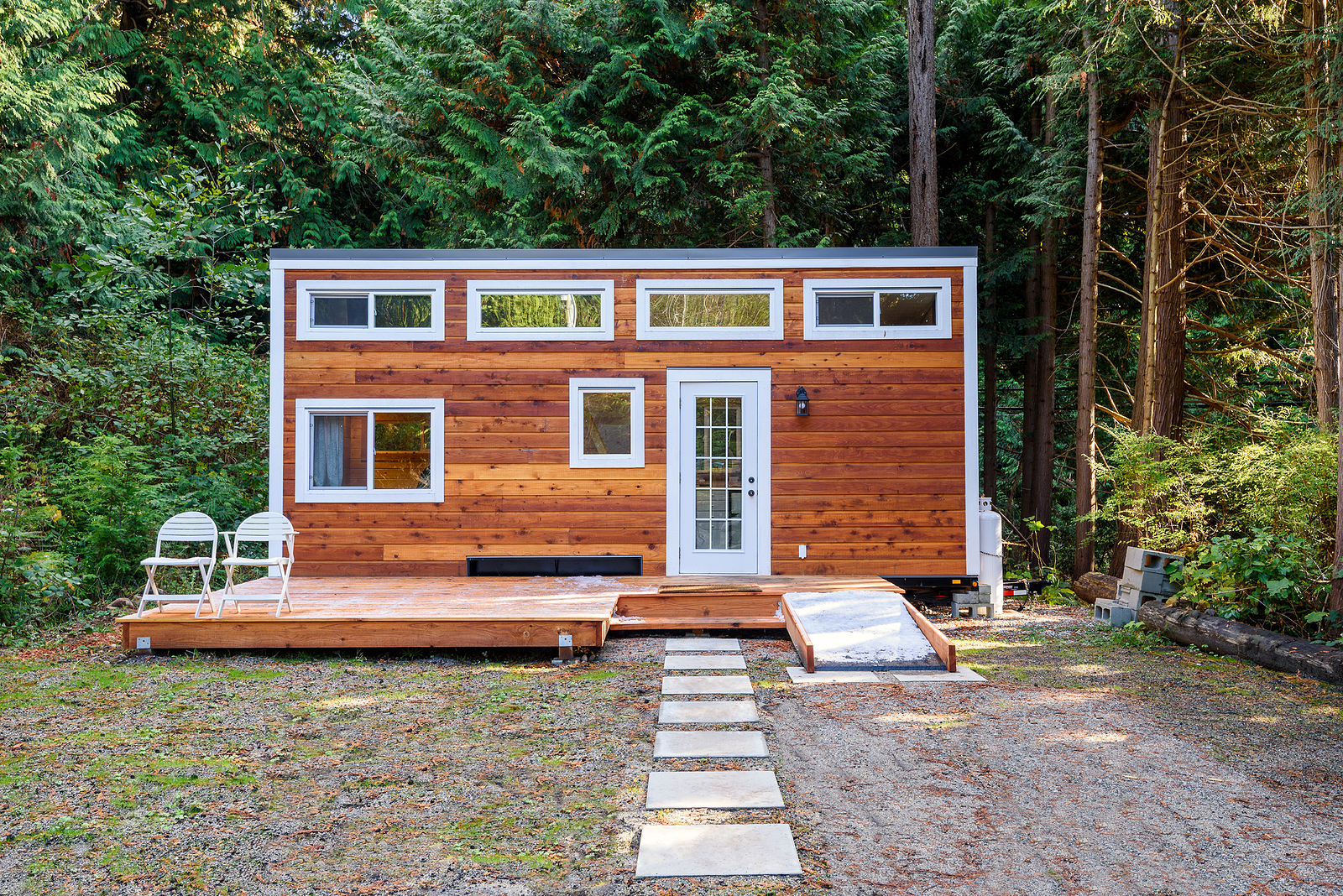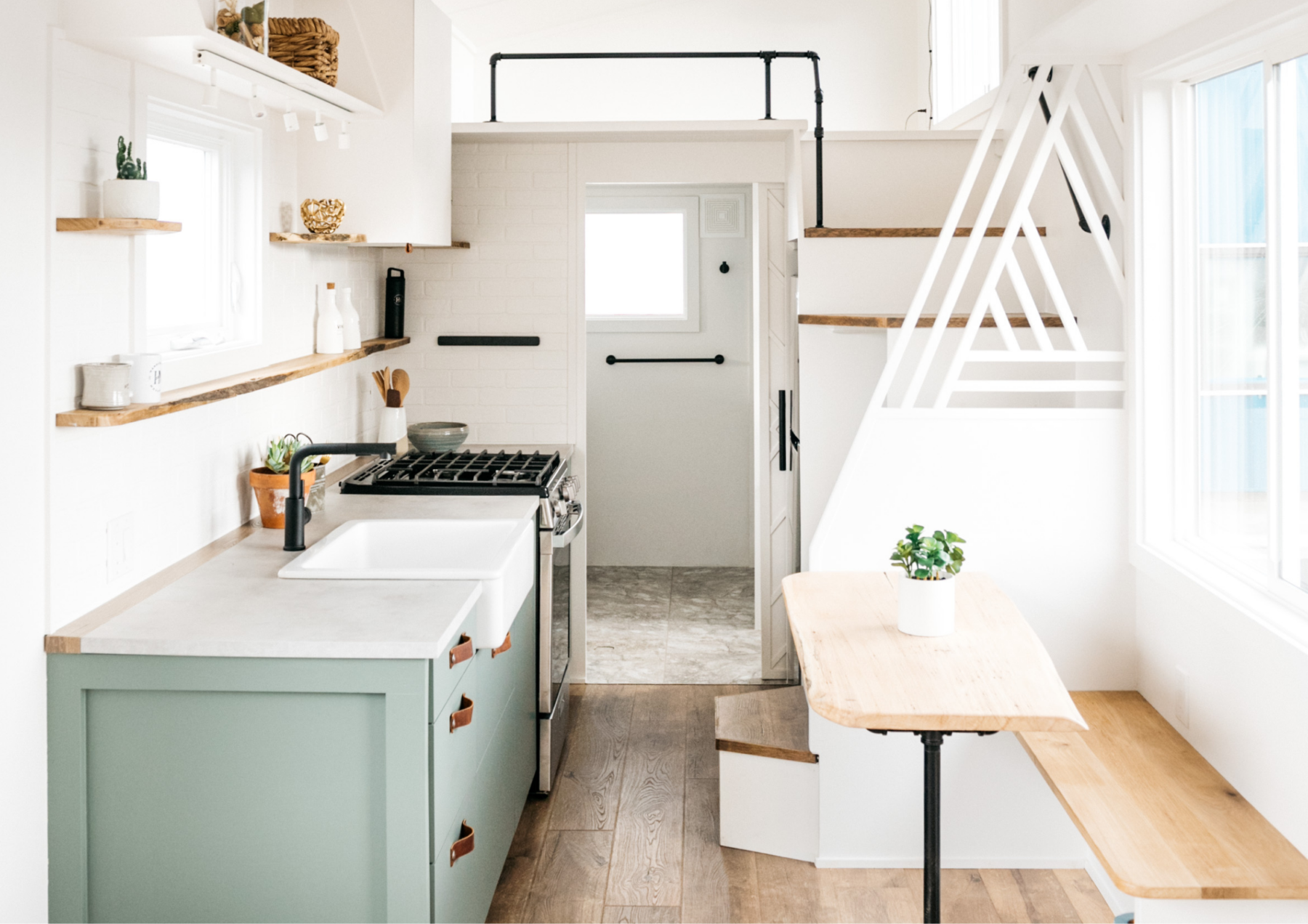The Rise of Tiny Homes – Is it Right for You?
In recent years, tiny homes have become a significant trend in the housing market. These small, often mobile dwellings offer an alternative lifestyle that emphasizes simplicity, sustainability, and financial freedom. But is living in a tiny home right for you? Let’s explore the rise of tiny homes and the factors to consider before making the switch.
What is a Tiny Home?
A tiny home is typically defined as a dwelling under 700 square feet. These homes can be stationary or mobile, built on a foundation or on wheels. Despite their small size, tiny homes often come equipped with all the essentials, including a kitchen, bathroom, living area, and sleeping quarters. The design of tiny homes focuses on maximizing space efficiency and functionality. Take a look at these tiny homes for inspiration!

The Appeal of Tiny Homes
Tiny homes have gained popularity for several reasons. Here are some of the main attractions:
Financial Freedom
One of the most compelling reasons people choose tiny homes is the potential for significant financial savings. Tiny homes are generally much cheaper to build or buy than traditional houses. Additionally, they come with lower utility bills, property taxes, and maintenance costs. For many, this means less debt and more disposable income for other pursuits.
Simplified Living
Tiny homes encourage a minimalist lifestyle. With limited space, homeowners are compelled to declutter and prioritize what is truly essential. This simplification can lead to a more organized, less stressful living environment. Many people find that owning fewer possessions helps them focus on experiences and relationships rather than material goods.
Environmental Impact
Tiny homes are often more environmentally friendly than larger houses. They require fewer building materials and consume less energy for heating, cooling, and lighting. Many tiny homeowners also choose to incorporate sustainable features such as solar panels, composting toilets, and rainwater collection systems, further reducing their environmental footprint.Mobility – For those who love to travel or seek a nomadic lifestyle, tiny homes on wheels offer unparalleled freedom. These homes can be moved from place to place, allowing homeowners to explore new locations without leaving the comfort of their own home. This mobility can be particularly appealing to those who work remotely or enjoy the adventure of living in different environments.
Challenges of Living in a Tiny Home
While the benefits are enticing, living in a tiny home is not without its challenges. Here are some potential downsides to consider:
Limited Space
The most obvious challenge is the lack of space. Tiny homes require careful planning and organization to ensure all essentials fit comfortably. Storage can be a significant issue, and there is little room for accumulating new belongings. This lifestyle is best suited for those who are comfortable with minimalism and do not require a lot of personal space.

Zoning and Legal Issues
Zoning laws and building codes can be a significant obstacle for tiny homeowners. Many areas have restrictions on minimum dwelling sizes or where mobile homes can be parked. It’s essential to research local regulations thoroughly before committing to a tiny home to avoid legal complications.
Privacy and Comfort
Living in a small space can sometimes feel cramped, especially if more than one person is sharing the home. Privacy can be limited, and the lack of personal space can be challenging. Additionally, tiny homes may lack some of the comforts and amenities of larger houses, such as full-sized appliances or extensive storage.
Resale Value
The resale market for tiny homes is still relatively niche. While the demand is growing, it can be more challenging to sell a tiny home compared to a traditional house. There are fewer potential buyers, and the market can be less predictable.
Is a Tiny Home Right for You?
Deciding whether a tiny home is right for you involves weighing the pros and cons based on your personal circumstances and lifestyle preferences. Here are some questions to consider:
- Are you comfortable living in a small space with limited possessions?
- Do you value financial freedom and are you willing to trade space for savings?
- Are you interested in sustainable living and reducing your environmental impact?
- Do you enjoy traveling or the idea of a mobile lifestyle?
- Are you prepared to navigate potential legal and zoning challenges?
If you find yourself answering yes to most of these questions, a tiny home might be a great fit for you. However, if you value space, privacy, and certain comforts, you might want to consider other housing options.
Conclusion
Tiny homes offer a unique and appealing lifestyle for those seeking simplicity, financial freedom, and environmental sustainability. By carefully considering the benefits and challenges, you can determine if this rising trend is the right choice for your future home.




